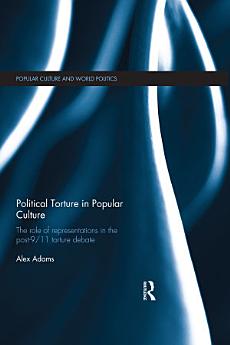Political Torture in Popular Culture: The Role of Representations in the Post-9/11 Torture Debate
About this ebook
Adams explores whether liberal democracies can ever legitimately perpetrate torture, contrasting assertions that torture can function as a legitimate counterterrorism measure with human rights-based arguments that torture is never morally permissible. He examines the philosophical foundations of pro- and anti-torture positions, looking at their manifestations in a range of literary, filmic and popular cultural texts, and assesses the material effects of these representations. Literary novels, televisual texts, films, and critical theoretical discourse are all covered, focusing on the ways that aesthetic and textual strategies are mobilised to create specific political effects.
This book is the first sustained analysis of the torture debate and the role that cultural narratives and representations play within it. It will be of great use to scholars interested in the emerging canon of post-9/11 cultural texts about torture, as well as scholars and students working in politics, history, geography, human rights, international relations, and terrorism studies, literary studies, cultural studies, and film studies.






